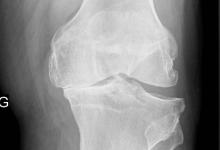Biologics in Lupus - Why, Who and When? Save
Although current standard therapies in lupus may provide symptom relief, biologics have the potential to modify the immunologic mechanisms of the disease.1 By changing the course of the disease, we can help improve lupus outcomes including minimizing disease activity with the fewest treatment-associated toxicities and slowing or preventing organ damage progression.2–4
In this series of three short videos, our rheumatology and nephrology expert panel, featuring Dr. Angela Crowley, Dr. Winn Chatham, and Dr. Abdallah Geara, explore which patients may be ideal candidates for biologic therapy and how to improve lupus outcomes based on current treatment guidelines, evidence, and expert guidance.
Podcast version also available here.

References:
1Yang B, et al. Front Immunol. 2020;11:539797.
2Fanouriakis A, et al. Ann Rheum Dis. 2019;78(6):736-745
3Urowitz MB, et al. Ann Rheum Dis. 2019;78(3):372-379.
4Lopez R, et al. Rheumatology (Oxford). 2012;51(3):491-8.
Changing the Course of Disease in Lupus: An Interactive Case Study

Defining disease modification in lupus provides a framework for clinicians and patients to consider the need to change the course of disease as a key treatment goal from diagnosis onwards.1
In this interactive case study of a hypothetical patient, learn how you can apply the concept of disease modification to your patients with lupus, and consider therapies that modify the immunologic mechanisms of the disease to improve outcomes.
References:
1van Vollenhoven R, et al. Lupus Sci Med. 2022; 9(1):e000634.
Share your feedback:
Share feedback on this program by completing a short survey
PSE-US-1495








